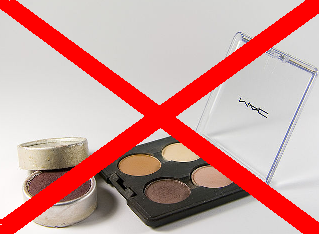In 2004, Thomas Tamm decided to expose the Bush administration’s domestic warrantless eavesdropping program that intercepted private email messages and phone calls of U.S. residents without a court warrant. He paid a high price for making this illegal program public, and now the federal investigation against him has been quietly dropped. This latest development has been covered by Juan Gonzalez and Amy Goodman of Democracy Now, and includes an interview of Mr. Tamm:
JUAN GONZALEZ: We turn now to an update on the whistleblower who helped expose the Bush administration’s warrantless domestic eavesdropping program. He made what’s been called the biggest leak of the Bush era.
In 2004, Justice Department attorney Thomas Tamm called the New York Times and told them about the National Security Agency’s secret program to intercept private email messages and phone calls of U.S. residents without a court warrant. Based in part on his tip, the Times went on to expose what many believe was a highly illegal program. The Times even won a Pulitzer Prize for its reporting. Meanwhile, Thomas Tamm lost his job. The FBI raided his house and began monitoring his phone calls and email. Up until this week, he faced possible arrest for disclosing classified secrets.
AMY GOODMAN: Well, on Tuesday, Politico broke the news that the Justice Department has dropped its longstanding criminal investigation of Tamm. Asked to comment on the story, Attorney General Eric Holder told reporters, quote, "These matters get reviewed by career lawyers in the department. They look at these matters in an exhaustive fashion and reach what I think are appropriate conclusions."
The relatively quiet end to the investigation into Tamm’s warrantless wiretapping leak marks a sharp contrast to the controversy his tip generated during the second half of the Bush administration about whether the government had overstepped its legal authority in response to the 9/11 terror attacks.
Thomas Tamm joins us now from Washington, D.C. We welcome you back to the program.
THOMAS TAMM: Thank you for inviting me.
AMY GOODMAN: Well, talk about what this means and what this investigation, your ouster from the Justice Department, what all of this has meant for your life over the past five years.
THOMAS TAMM: Well, I mean, it’s a relief that the long ordeal is over. Unfortunately, I ruined my career. I had loved working at the Justice Department, particularly in the Criminal Division. It was an honor to represent the people of the United States. As a result of that, I incurred significant legal fees, which I still owe. I borrowed money for those legal fees. And, you know, really, probably the biggest impact was on my family. I wasn’t home when the 18 FBI agents rammed through my house, but my wife was, and my kids were. My kids were awakened in their beds by strangers wearing guns. And I don’t think that they will ever get over that. My wife doesn’t feel the same way about our house, doesn’t feel as safe in our house.
AMY GOODMAN: Could you go back, just chronologically take us through this? Your case did not get a tremendous amount of attention, certainly through the years. So talk about what you found out when you were working in the Justice Department, when you made that phone call to the Times, and how this raid took place. But start at the beginning.
THOMAS TAMM: Well, it really kind of started with me after 9/11. In the Criminal Division, we had the opportunity to talk to the families of the 9/11 attack, and I decided that I wanted to try and go after the real bad guys, the people that had attacked our country. And so, I went to this office where you were—where we did legal wiretapping and electronic surveillance, approved by a court, to try and gain intelligence about foreign agents. I was there only a short period of time. It was right at the start of the Iraq war, and fear permeated that office. And it was—I think for the first time I understood what fear, "the only thing we have to fear is fear itself," actually meant.
And as I participated in that, I realized that there was a separate track of cases, about 10 percent of the cases, that did not go through the normal process, that went to just one particular judge. And only the Attorney General could sign those warrants, which was different from all of the other cases that I handled. And I remember a lawyer that was senior to me saying that she didn’t want to know what this program was. She just assumed it was illegal. And so, I just started—it was kind of an educated guess.
And, you know, it’s interesting to say that I made a phone call to the New York Times. Actually, it was a series of phone calls before I became comfortable even talking to them, and then it was a series of meetings, during which I said, "I think that there’s something illegal going on. I’m not sure what it is."
[More . . . ]

